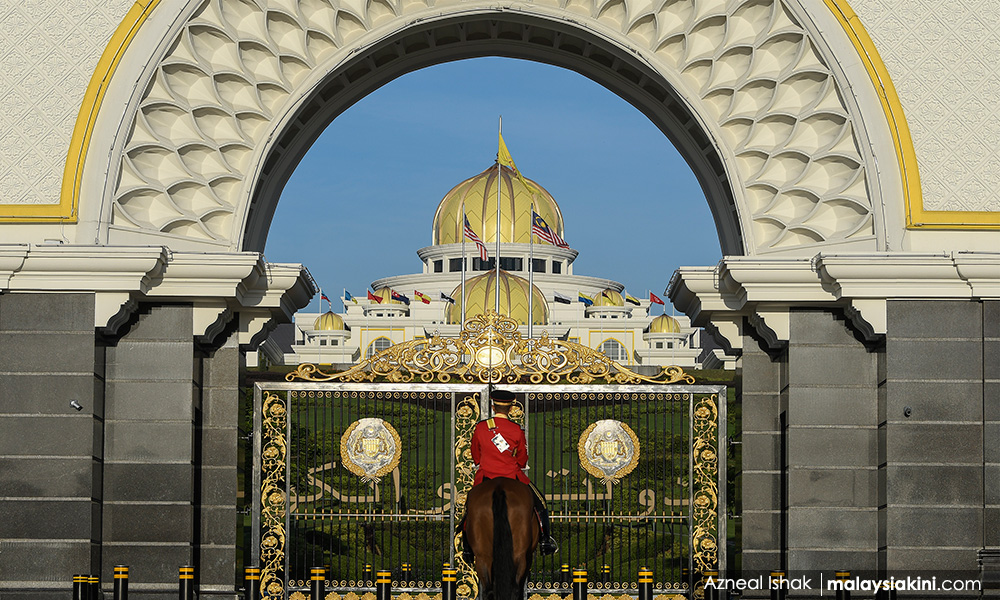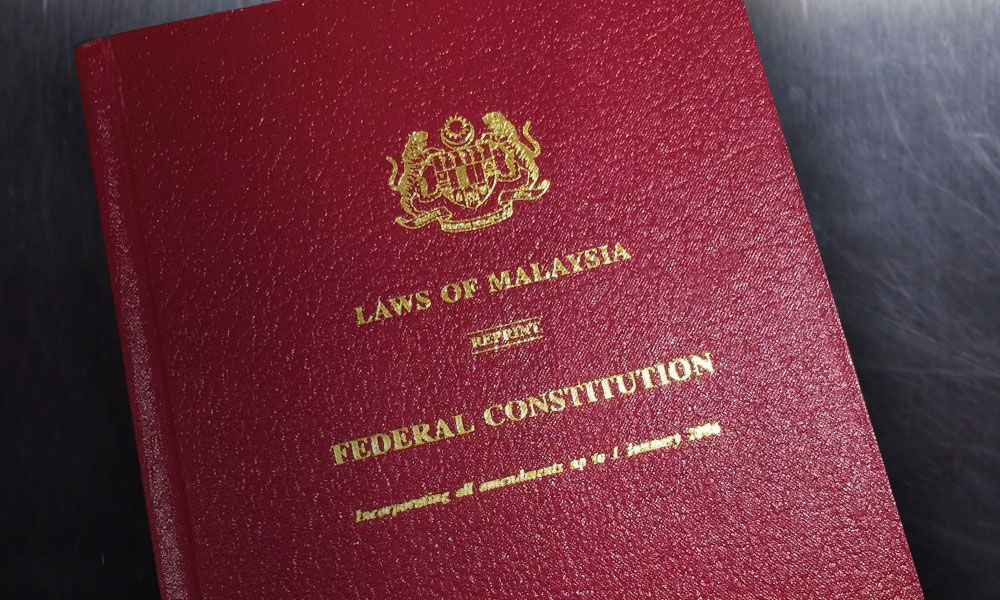
There is no feedback yet from the Yang di-Pertuan Agong on the new chief justice, says Dr Mahathir Mohamad.
Speaking to The Star in an interview published today, the premier stressed that the decision made on the replacement for retired chief justice Richard Malanjum cannot be altered without good reason.
"I always imagine that the king is the person who must approve all senior appointments, but somehow or rather, there is reference to the Conference of Rulers. Now, it is not just the king, but it also has to go to the rulers.
"I don’t know what it means. The decision made (by Putrajaya) cannot be altered, unless there is a valid reason.
"We have made a decision (on the chief justice) and sent it to the king. At this moment, I still have not received any confirmation of the candidacy," he said.
'The people’s government'
On the requirement in certain states for economic plans to go through the palace before being presented to state assemblies, Mahathir told The Star the rulers can only view the plans, but cannot approve or decline them.
"The right to implement anything rests with the people’s government."
The premier further lamented that his name was "blackened" in saga surrounding the ratification of the Rome Statute of the International Criminal Court.
"To blacken my name so that I would not be influential so that I can be overthrown. This is ongoing.
"We should actually take action over such things, but then again, we have a problem of implementation, because the agencies of the government are often reluctant to do anything. They look the other way," he said.
Earlier this month, Mahathir announced that Putrajaya was withdrawing Malaysia's ratification of the Rome Statute.
This, he said, was as a result of confusion over the matter created by a particular person "who wants to be free to beat up people and things like that."
According to Mahathir, the people are forced to give in to the rulers out of both fear and respect.
"There is some inherent fear that something will happen to them if they carry out their work and they try to avoid it.
"For example, if somebody is hit by a member of the royalty, instead of taking it to courts, they try to cover up," he said, though stressing that he is not anti-royalty.
Special court for rulers not utilised
Mahathir said that despite the curtailing of royal immunity during his first tenure, the – including elected lawmakers – are still very apprehensive about questioning the wrongs allegedly committed by rulers.

"When the states accept the changes within the Federal Constitution, the states have to abide by the principle of the government by the people.
"But to do that, you must have people who are able to say to the rulers, for example, this is wrong, this is against the law, this is not good for the country and all that. We find reluctance on the part of everyone to point out that this is wrong.
"For example, if the ruler takes land, confiscates land and all that, this has to go through the administrative process. The administrators dare not refuse. So, land has been taken away from the people, wrong things were done – things that were against the law," he said.
"But the enforcers, the executive wing, will not do anything. They will just comply. Because of that, at the moment, there is a government that (is) almost not democratic.
"It is the mentality of the people that this is sacrosanct and this is something above us and we cannot say no, even if wrong things are done."
Citing the non-utilisation of the special court for rulers established in 1993, Mahathir said his attempts to correct the situation have gone "backwards".
"It was only used once (since 1993) but after that, it has never been used. Suppose, somebody has been punched, it does not get to the court, even though they make reports. People think they will get into trouble if they do not comply.
"It goes (on) throughout the civil service, among politicians, among the government. They are reluctant to say anything that implies somebody (from the royalty) is doing something wrong."
Handling the issue is problematic, Mahathir acknowledged, especially when amending laws requires a two-thirds majority in Parliament, which his administration does not have. - Mkini



No comments:
Post a Comment
Note: Only a member of this blog may post a comment.